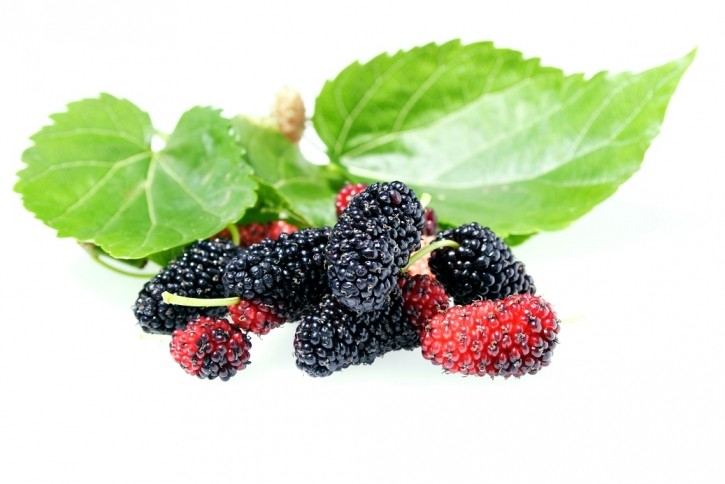Unilever study finds low-dose mulberry fruit extract impacts glucose spikes

The study, conducted by researchers from Unilever Foods Innovation Centre Wageningen and recently published in the journal Nutrients, assessed the acute postprandial effects of low doses of MFE in a randomized cross-over design.
Relative to control, the resulting data indicated the addition of 0.37 and 0.75 g of MFE reduced the mean two hour post-prandial glucose (PPG) by 8.2% and 22.4%, respectively, and reduced post-prandial insulin (PPI) by 9.6% and 17.5%.
“MFE appears to dose-dependently reduce acute PPG and PPI in individuals with type 2 diabetes and may be a feasible dietary approach to help attenuate glycemic exposures," the researchers wrote.
Diabetes management
The key treatment target for the management of diabetes is the improvement of glycemic control, which includes not only fasting glucose levels but also postprandial glucose (PPG) responses.
Mulberry products are a source of iminosugar 1-deoxynojirimycin (DNJ), which acts as an alpha-glucosidase inhibitor. The inhibition of alpha-glucosidase slows the final step in the digestion of dietary carbohydrates and can thus reduce the rate of uptake and appearance of glucose in blood. A range of naturally-occurring and synthetic iminosugar-based molecules show alpha-glucosidase inhibition, making this the basis for a class of existing drugs (e.g., acarbose and miglitol).
However most research has used mulberry leaf extract (MLE) with 2 to 10 times higher extract doses and DNJ contents.
Unilever researchers have shown through a series of controlled trials that a well-characterized mulberry fruit extract (MFE) containing 0.5% DNJ reduces both PPG and post-prandial insulin (PPI) responses to test meals in healthy human subjects without diabetes.
The present study was intended as a pilot test to assess the potential effects of low doses of a well-characterized MFE on acute PPG and PPI responses in otherwise healthy individuals diagnosed with type II diabetes
Study details
A total of 24 unmedicated men and women (mean age 51, BMI 27.5) consumed meals with 0 (control), 0.37g, and 0.75 g of MFE added to 50 g carbohydrates from rice. Primary and secondary outcomes were the PPG 2 hour positive incremental area under the curve and the corresponding PPI. Results were reported as mean differences from the control meal with 95% CI.
For the analysis of plasma glucose and serum insulin, two consecutive baseline blood samples were collected with a maximum gap of five minutes and within a period of 15 min before the start of the test meal. Following the start of the test meal at t = 0 min, blood samples were collected at t = 15, 30, 45, 60, 90, 120, 150, 180, 210 and 240 minutes for analyses.
Subjects completed a gastrointestinal discomfort questionnaire 30 minutes prior to and at 240 minutes after the consumption of the test meals. The questionnaire asked whether subjects had experienced any flatulence, nausea, bloating or bowel pain, with each symptom separately rated as none, mild, moderate or severe.
For the analysis of urine glucose, a baseline urine sample was collected approximately 30 to 45 minutes before each test meal. Urine subsequently produced by each subject was collected in pots during the fourth hour following the consumption of test products and immediately refrigerated.
There were no indications of adverse events or gastrointestinal discomfort. MFE additions also led to dose-related reductions in glucose peak and glucose swing.
“This trial adds to a series of studies on mulberry extracts and MFE specifically, supporting their safety and efficacy for reducing acute PPG and PPI responses to common dietary carbohydrate sources and different populations,” the researchers concluded. “Together with the present results, the evidence indicates that a modest dose of 0.75 g of MFE containing 3.75 mg of DNJ consumed with a digestible carbohydrate source is likely to cause mean reductions in the range of about 10–25% in the 2 hr PPG AUC, as well as reduce PPI, peak glucose and glucose swing in healthy individuals and individuals with diabetes.”
Source: Nutrients
doi: 10.3390/nu16142177 (registering DOI)
“Effect of Low-Dose Mulberry Fruit Extract on Postprandial Glucose and Insulin Responses: A Randomized Pilot Trial in Individuals with Type 2 Diabetes”
Authors: Mela, D.J. et al.














